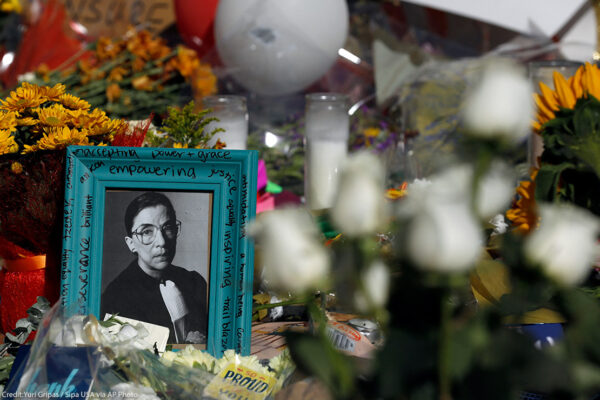With the exception of Thurgood Marshall, no Supreme Court justice did more to realize the Constitution’s promise of “equal protection of the law” than Ruth Bader Ginsburg, who died on Friday. Where Marshall, as director-counsel of the NAACP Legal Defense Fund, succeeded in dismantling Jim Crow segregation, Ginsburg, as the first director of the ACLU Women’s Rights Project, persuaded the Supreme Court that women and men, long treated differently under the law, must be accepted as equals.
Neither acted alone; they carried the torches of the civil rights and women’s rights movements, respectively. Their courtroom arguments were buoyed by broader political currents. But both achieved far-reaching, historic changes in constitutional law. And both did it incrementally, through careful, painstaking work, aimed at appealing to those not already with them. As Ginsburg said, “Fight for the things that you care about, but do it in a way that will lead others to join you.”
In the last years of her life, Ginsburg became an unlikely celebrity. RBG T-shirts, mugs, earrings, bobblehead dolls, workout gear, and books all became best-sellers. In 2018, both a documentary, RBG, and a Hollywood feature film, On the Basis of Sex, appeared, to popular and critical acclaim. Chief Justice John Roberts quipped, at the unveiling of a portrait of Ginsburg, that his children asked him why he, too, didn’t have a rapper’s moniker. She deserved every bit of the praise. One of only nine women in a class of about five hundred at Harvard Law School, she broke many barriers, and her work made it possible for young women today to take for granted that they cannot be denied admission, jobs, or other benefits simply because of their sex. That’s radical.
Note: This piece was first published in the New York Review of Books on September 20, 2020

